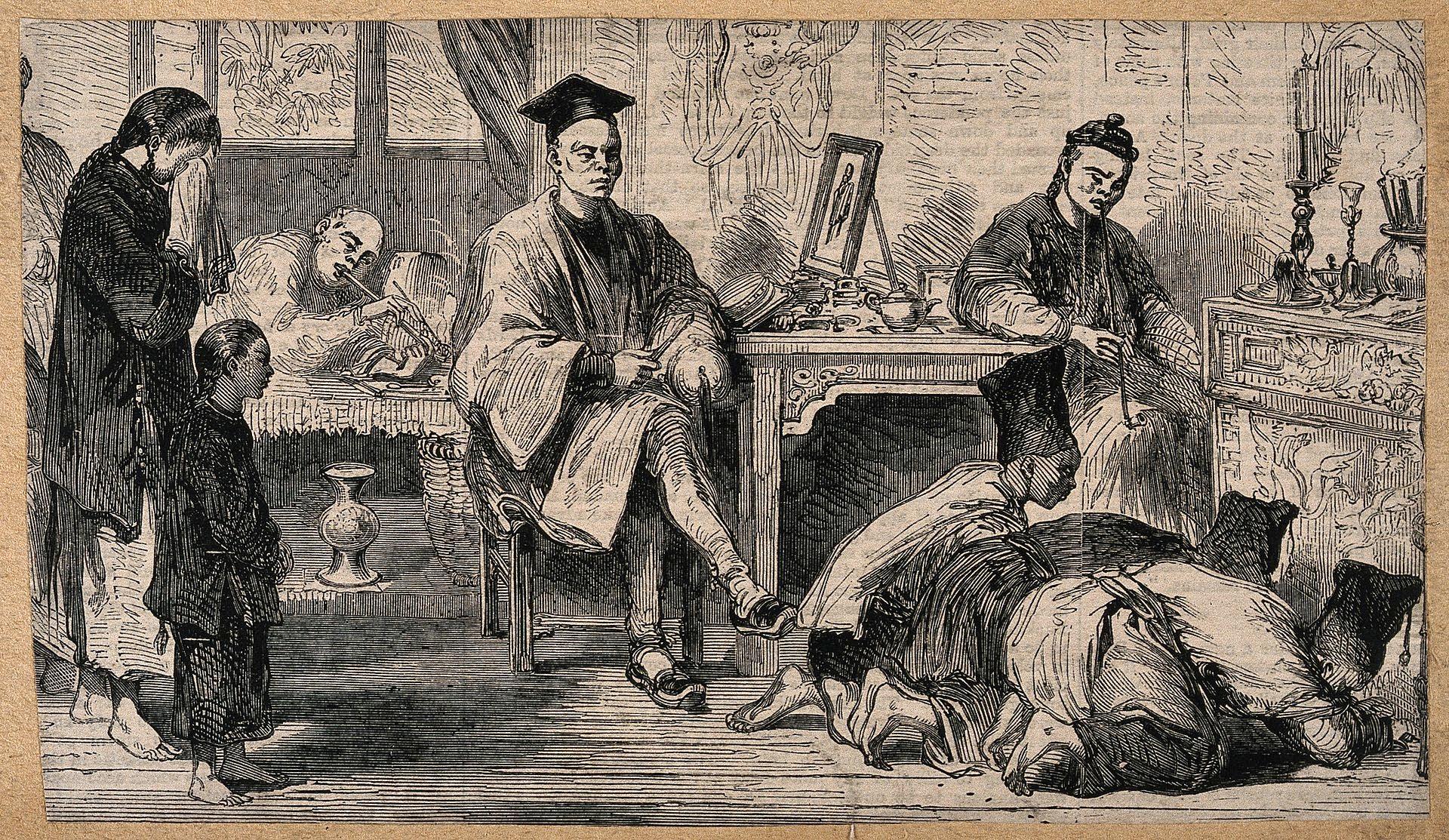This photograph published in the Qilu Evening Post on February 10, 2016, shows Zhang Jinli's deep kowtow before his parents near a trainstation in China.
The Qilu Evening Post, a regional paper in eastern Shandong Province, recently showed a photograph of a 46-year-old Chinese man named Zhang Jinli. He works for a pharmaceutical company in Beijing, and in the photo, he’s pictured kowtowing to his parents at a railway station.
The photo has caught fire on social media and restarted a conversation about the proper place of this traditional gesture in modern China.
“The kowtow is definitely about respect. It has to do with paying respect to parents and the ancestors,” says Joanna Lee, an expert on traditional Chinese culture who often travels between Hong Kong and New York. She’s also the translator and compiler of The Pocket Confucius. “You really have to kneel down, and you’re supposed to have your hands, the palms, actually on the floor in front of you. … The most traditional way is that literally your forehead knocks on the ground three times — and you can hear the knocks.”
Respect for one’s elders isn’t a controversial subject, but still, the photo is creating a buzz. For many Chinese kowtowing is reserved for a temple, an ancestral hall or a private home. Lee says she’s surprised by the location in the photo, “For him to be doing it in a public space, that for me was a little bit strange.”
Lee also points out that the custom of kowtowing is associated with the teachings of Confucius, “so we’re talking about something that dates back to around the 5th century BC. So the idea that somebody is still doing it, that too is a little bit strange, especially in a railway station.”
It begs the question, is this kowtowing seen as out of place because it’s being done in the public setting of a railway station or because its 2016?
“I think it’s both,” says Lee, but she adds that many Chinese still kowtow on important occasions. “You show respect to all of your elders.” Lee says she kowtowed at her own wedding as well as for the first day of Chinese New Year, but she says “you do it in private in your home.”
oembed://https%3A//www.youtube.com/watch%3Fv%3DkOdjRmUVGQg
Bowing also sometimes suggests shame or asking for forgiveness. The photo seems to suggest that the son was apparently begging his parents, who are both in their 80s, for forgiveness. The Chinese newspaper reported that Zhang was "emotional, did not think that he had been a filial son, and believed that he had been unworthy to his parents."
Lee says the photo suggests the son who works away from home was actually saying goodbye to his parents.
Nowadays, Lee says there are alternative ways to show one’s respect such as sending your parents messages, or for those who can afford it, money — or inviting them to live with you in the same house. But if you do wish to kowtow, remember to kneel down, put your palms out on the floor in front of you, and “you must have your forehead knock on the ground, three times, and make the noise.”
